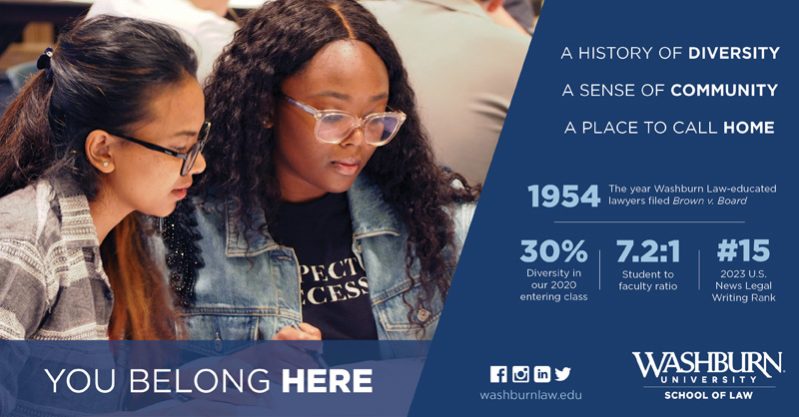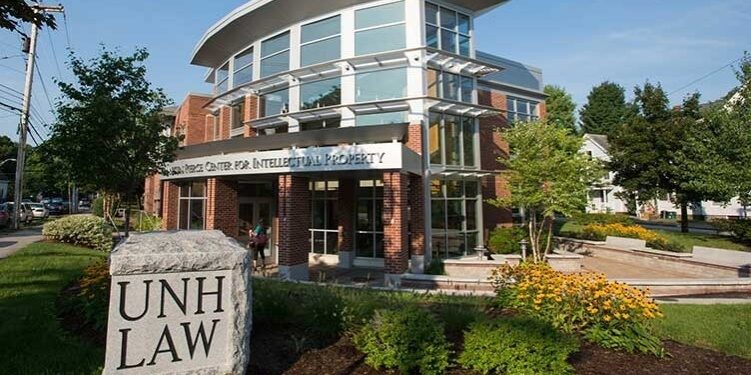
May, 2022 – Issue 5
Welcome to The Council on Legal Education Opportunity, Inc. (CLEO) JD Report where we will share tips on how to prepare for and succeed in law school. Get legal profession insights from our CLEO alumni, and get to know our Partners-In-Law: law schools that are making a commitment to diversity and inclusion.
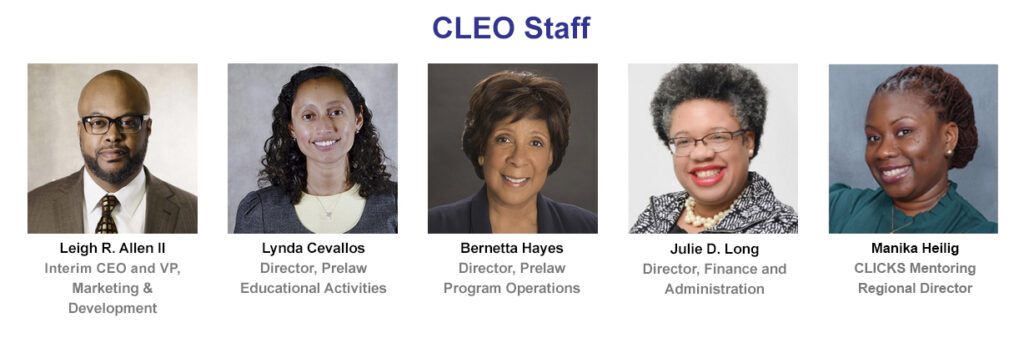
The Council on Legal Education Opportunity, Inc. (CLEO): is a 501(c)(3) national non-profit organization that was founded in 1968 to expand opportunities for minority and low-income students to attend law school. Since its inception, more than 28,000 students have participated in CLEO’s programs and joined the legal profession.


Read Secrets of a Law Student’s success & how CLEO can help YOU!
Xavier T. de Janon
Golden Gate University School of Law
San Francisco, CA
Q1. What was your course of study in college?
I studied Critical Race Theory and International Relations at Hampshire College.
Q2. How did you become interested in pursuing law?
During college, I got involved in supporting an imprisoned Muslim man who was entrapped by the FBI after refusing to be an informant for his mosque. I quickly learned how legal skills and knowledge can make a direct and systematic impact in society. After college, I worked several legal assistant positions and took on organizing roles for social justice. This included supporting immigrant rights with Mijente, the rights of imprisoned people with Southerners on New Ground, and the Atlanta Bail Project, advocating for economic justice with Faith in New Jersey, and uniting efforts for prison abolition with Critical Resistance. I also got involved with cultural organizing, particularly for queer arts in the South. Through these experiences, I kept seeing the power of change that a law degree can create: it can open doors and immensely help organizers and activists on the ground. After I realized I was good at legal work, I decided to pursue a law degree to continue bringing change to society.
Q3. What steps did you take to prepare for law school?
I rested! A lot. I quit my job a month before law school and enjoyed my time with my loved ones. I also read some books on U.S. law during my free time, but they were not too heavy; they gave me basic foundational knowledge. I also did CLEO’s 1L-Prep Attitude is Essential.
Q4. How did you find out about CLEO?
Through a LSAC conference.
Q5. What benefits did you receive by participating in the CLEO Pre-Law Summer Institute or 1L-Prep Attitude is Essential?
AIE definitely gave me a head start for 1L, which can be very disorienting for the first couple of weeks. I felt confident in the type of studying I had to perform, and I understood what upper classmates and professors meant when they referred to study techniques and how the semester would go. I picked up skills that I could strengthen during 1L instead of learning them from scratch as the semester got busier.
Q6. What helped you cope with the stress of law school?
My entire community: partner, loved ones, friends, family, and classmates. Remaining in touch with those who are close to me helped me stay grounded and connected with myself. I did not stop going to events I cared about or got too consumed by law school happenings. I also benefited greatly from creating a schedule that included downtime and rest.
Q7. After law school, what are your legal career plans?
I intend to be a public defender and develop litigation skills to continue social justice work.
Q8. Do you volunteer or intern with any legal organizations?
I volunteer for the National Lawyers Guild and Equal Justice Works. For the National Lawyers Guild, I perform legal [work] observing for political actions and protests, supporting organizers and activists. Through the organization’s network, I also provide assistance to individual cases and movements as help is needed. For Equal Justice Works, I serve as a member of the National Advisory Committee, providing feedback and support for the organization’s national work of promoting public interest law careers.
Q9. Do you have any advice for future lawyers?
Stick with your passions! It is very easy to lose your “why” under the pressures of law school and student loans, but we can’t forget why we decided to get into the profession and what our values are. It is more fulfilling to follow your dreams and heart than to give them up for comfort or wealth.
Q10. What motivates you to be part of the legal profession?
The fact that we have enormous amounts of power to help people, while actively resisting oppressive systems. Lawyers have the ability to support movements and individuals, and I am motivated by the great potential of collaboration.


Four friends – Albert, Bethesda, Claudia, and Daren – will each tour two law schools, one in May and one in June. The law schools they will tour will include Fordham, Quinnipiac, University of Missouri, and University of Richmond. Each law school will be toured twice – by one of the four friends in May and by a different friend in June. Using the following clues, can you determine which law school each friend tours in May and June.
- Albert tours University of Missouri in May. He does not tour Quinnipiac in June.
- The law school that Daren tours in June is the same law school that Claudia tours in May.
- The law school that Daren tours in May is the same law school that Bethesda tours in June.
- Bethesda tours Quinnipiac in either May or June.
- Claudia does not tour Fordham in May.
Solution: Albert tours University of Missouri in May and Fordham in June. Bethesda tours Fordham in May and Quinnipiac in June. Claudia tours University of Richmond in May and University of Missouri in June. Daren tours Quinnipiac in May and University of Richmond in June.

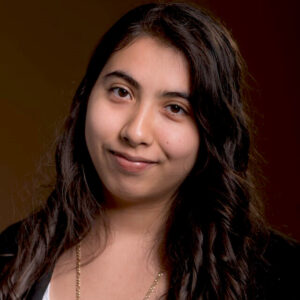
Read Secrets of a Pre-Law Student’s success & how CLEO can help YOU!
Yeannet Ruiz
Pre-Law Student
Clark University
Worcester, MA
Q1. How did you find out about CLEO?
I first heard about CLEO through SEO when they provided an extensive list of pipeline programs geared towards first-generation and low-income students. I decided to google each program to learn further and see if I qualified.
Q2. When did you realize you wanted to attend law school?
Deep down, I always knew that I wanted to pursue law, however I wasn’t sure exactly how to go about it. I come from an immigrant family and seeing my parent’s situation [made me feel] hopeless. There was nothing I could do to help them. It was frustrating always living in limbo at the mercy of immigration policy. My lived experience has shaped and molded me into the person that I am which is why I want to pursue law school. After working for over two years, I realize that now is the time to pursue law school. As an attorney, I know that I’ll be able to make a difference and serve those who are low-income and from communities of color. I want to serve as an immigration lawyer to advocate for those who have made their livelihood here in the United States.
Q3. What did you learn during the various CLEO programs?
I participated in the CLEO Juniors Jumpstart the LSAT (JJ LSAT) seminar and various CLEO Connection sessions. In In both programs, the panelists have been very gracious with their time in willingness to talk to students and share their experiences. I have learned a lot and have been able to inquire about their experience and the challenges they faced. Many of the panelists come from similar backgrounds as me and it is very inspiring to see young people of color fulfilling their dreams.
Q4. How has the CLEO programs influenced your preparation for law school?
The programming CLEO has offered to prospective students is instrumental and valuable information. I was able to speak to a law school admission representative to follow up on questions about the process and learn about the campus culture. These programs offer students an opportunity to talk to admission officers to help us prepare for the application process.
Q5. Select one of the CLEO programs (ASAP, JJ LSAT or CLEO Connection) you attended.
What portion of that program was most beneficial to you and why?
I have attended the CLEO Juniors Jumpstart. I like the component of taking a practice LSAT assessment to gauge our benchmark with the exam. This exam is an enormous undertaking, but it was a chance to connect with some LSAT instructors to talk through some strategies for the exam. One thing that I learned about myself after taking the practice was not having sufficient endurance to go through the whole exam. However, given that I learned this about myself it is something that I continue to work on constantly.
Q6. Do you plan to attend any future CLEO events?
Yes, they are very beneficial, and I always learn something new. More than anything I have been able to meet lawyers and current law students. These connections are essential throughout this process. It has allowed me to connect with CLEO Alumni and have a network. I have been able to engage with Alumni to hear and learn about their areas of practice.
Q7. Do you have any advice for other aspiring lawyers?
Seek out information and learn about the process as much as possible before applying to law school. It’s good to start very early. Also, create a timeline to outline all the pieces of the application process. Lastly, reaching out and leaning on loved ones for support [is important].
Q8. Do you have any additional comments about CLEO?
I love how CLEO tries to demystify the law application process for students. The programming is insightful and provides invaluable resources to students.

Meet a dynamic young Scholar & listen to her secrets of success!
Juwarriyah Mahmood – Mentee
11th Grade, South Atlanta High School
Atlanta Georgia
Jeanna Sawyer – Mentor

Erika Robinson - 2010 CLEO Alumna
University of South Carolina School of Law Graduate
The CLEO “Alumni Spotlight” showcases CLEO alumni and the experience and success they’ve had in the legal profession. It also represents a space to highlight community involvement, volunteer service, and the impact CLEO alumni are making in society. If interested in being considered for an upcoming “Alumni Spotlight,” please send an email to alumni@cleoinc.org.

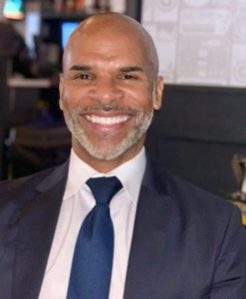
Virtual Pre-Law Advising: Opportunity in Crisis
Charles Robert Davidson, J.D., Ph.D.
John Jay College of Criminal Justice
City University of New York
New York, NY
The on-going pandemic has caused far-reaching alterations in the way things are done in our professional and personal lives, and pre-law advising has not been immune from these shifts. While many advisors have long offered alternatives to in-person advisement, few of us were fully prepared to make the abrupt transition to a completely virtual advisement process. For already financially-strapped institutions and the students that they serve—often first-generation students and students of color—the transition to a completely virtual system was initially hampered by an array of logistical and systemic problems, ranging from the novelty of the technology for many users to issues of access, both to computers and broadband internet. As the Director of the Pre-Law Institute (PLI) at John Jay College of Criminal Justice, I witnessed first-hand the challenges of shifting a large, vibrant in-person office to an entirely remote operation.
While the weight of opinion remains divided on which modality best serves students, in the realm of advising, remote methods have some clear benefits, particularly for our CLEO students. As we know, our students are ambitious and intelligent and have bright professional futures ahead. We also are keenly aware that, for many, financial realities require them to work or attend to family responsibilities while attending college. The shift to virtual advisement, while creating some obstacles, also opened a world of new possibilities for these and other students.
Some of the primary benefits of virtual advisement for our students include:
- Equity: Physical presence can be costly. Travel expenses, food costs, not to mention time lost in transit, all add up. Virtual advising has allowed us to meet with students without their having to factor in travel expenses and time into their decision to seek advisement. Importantly, because of the relative ease of meeting, the range of students with whom we meet has expanded and has allowed us to connect with students for whom money, time, and access are in short supply. For instance, students with disabilities are often uniquely disadvantaged in dealing with public transport and access; virtual advising has helped to alleviate some of these challenges.
- Flexibility: Many of our students work or have family responsibilities that complicate their ability to schedule advising. Virtual advising allows us to speak to students during their workday or after work, for shorter but more targeted sessions. Students who were disadvantaged by our traditional office hours have been able to meet with an advisor regularly and have greater control over their advisement program. Moreover, because of the flexible nature of virtual scheduling, students can get quicker and more convenient appointments, even on short notice.
- Preference: While many students and advisors lament the loss of the “energy” of in-person advising, we have seen many students thrive in the virtual setting. We had to acknowledge that for some, the first (or second!) appointment with a new advisor can be intimidating and anxiety producing. Virtual appointments and programs have offered these students a less stressful introduction to the world of pre-law advising.
- Expansion: For many academic units, the pandemic has not been one of great growth yet the switch to virtual group advisement and programming can offer some hope. Group advisement has been an effective way to gather groups of students to discuss general topics such as an introduction to the LSAT and law school financing workshops. Because we are doing more virtual programming, we have extended the range of guest speakers, practicing lawyers, legal academics and other professionals who participate in our programs, thereby giving our students a richer array of ideas and experiences.
Virtual advising, while an excellent tool, is certainly not ideal for every student or every circumstance. Some students need a more personal connection, and we can continue to honor that while recognizing many of our students benefit from the flexibility and ease of virtual advisement. While both models have their benefits, our work as advisors is to inform and to inspire, and many of our best practices developed over the years—caring, attention, respect, and enthusiasm—remain essential to effective advisement regardless of the platform we use.

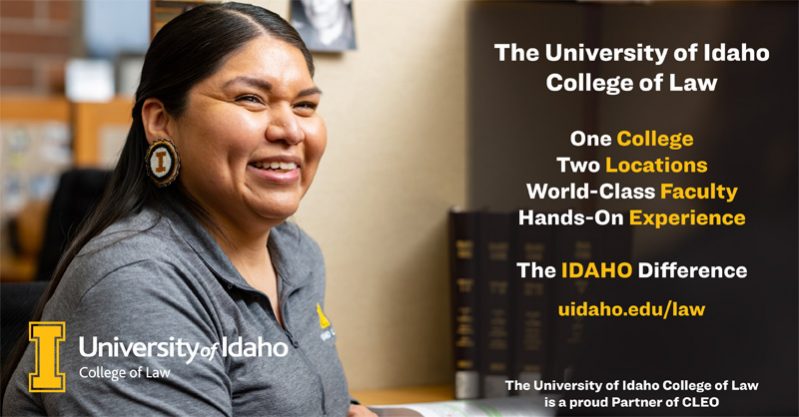
The IDAHO Difference
Idaho Law - Affordable and High-Quality Legal Education
The only law school in the state, “The University of Idaho College of Law is known for low student debt loads, strong employment outcomes, and unique access to experiential learning opportunities…. Its Class of 2021 graduates recently reported a 90% overall employment rate, with 23 students clerking for Judges at the local, state, and Federal levels.” Idaho Law has been a proud partner of CLEO since 2000. The law school is one of the original CLIC (CLEO Legally Inspired Cohort) Partners with CLEO in the six-year-old innovative access-to-law-school program.
Visit The University of IdahoCreating a Sustainable Movement
MCCA has once again shown its commitment to pipeline programming
MCCA has once again shown its commitment to pipeline programming. For the second year in a row, the organization has sponsored 20 students of the 40 who will attend the 54th annual Pre-Law Summer Institute. Last year, MCCA enabled 20 of CLEO’s students to study for six weeks, immersed in this boot camp experience. Once CLEO and CLIC Fellows enter law school, they are comfortable and confident that they will become successful law school students.
Visit MCCAWashburn University School of Law
Educational equality is not lost on Washburn University School of Law
Located in the state of Kansas’ capital city, Washburn Law is just a few blocks from the Brown v Board of Education of Topeka National Historic Site. Washburn Law has been a CLEO ally for almost 22 years. Most recently the law school became the fifth partner school of the innovative CLIC Program.
Visit Washburn University LawUniversity of New Hampshire
CLEO Welcomes UNH Franklin Pierce School of Law
Committed to building and sustaining a diverse, equitable, and genuinely inclusive environment for all students, staff, applicants, and visitors. CLEO is pleased to announce that Franklin Pierce Law is our newest CLIC Partner Law School.
Visit University of New Hampshire Law
CLEO, Inc. is proud to include many of the nation's premier law schools in our Consortium on Diversity in Legal Education.
PARTNER LAW SCHOOLS
Loyola University New Orleans College of Law
Penn State Dickinson Law
Quinnipiac University School of Law
UConn School of Law
University of Idaho College of Law
The University of Mississippi School of Law
University of New Hampshire Franklin Pierce School of Law
Vermont Law School
Washburn University School of Law
SUPPORTING LAW SCHOOLS
Brooklyn Law School
Case Western Reserve University School of Law
Golden Gate University School of Law
New York Law School
South Texas College of Law Houston
SUSTAINING LAW SCHOOLS
Florida International University College of Law
Mercer University School of Law
Michigan State University College of Law
Southern Illinois University School of Law
The University of Chicago Law School
University of Pennsylvania Carey Law School


